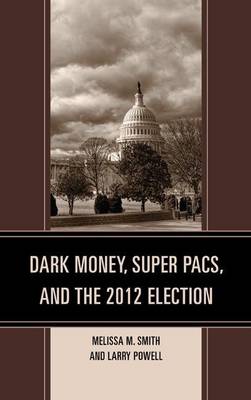Lexington Studies in Political Communication
3 total works
Dark Money, Super Pacs, and the 2012 Election
by Melissa M Smith and Larry Powell
Published 1 January 2014
More than two billion dollars. That's how much money was spent in the 2012 presidential campaign-the most expensive campaign in history. Each party raised and spent more than one billion dollars as the traditional boundaries of campaign financing were ignored. Both parties could do so because they were playing in a game with new rules-rules that largely developed after the 2010 Supreme Court ruling known as Citizens United. That case removed many restrictions on donation limits, particularly for corporations and unions. The result was the development of a new set of political players called "Super PACs" that were allowed to enter the political arena and spend an unlimited amount of money on behalf of clients.
This book looks at how Super PACs raised and spent money and influenced the 2012 election. It provides an insightful look at how both right- and left-leaning groups approached the election and impacted the political process.
This book looks at how Super PACs raised and spent money and influenced the 2012 election. It provides an insightful look at how both right- and left-leaning groups approached the election and impacted the political process.
Campaign Finance Reform
by Melissa M Smith, Glenda C Williams, Larry Powell, and Gary A Copeland
Published 1 January 2010
For decades, campaign finance reform has been an on-going topic of discussion. In particular, the Bipartisan Campaign Reform Act of 2002 (BCRA) was heralded as a major breakthrough in controlling the flow of money into campaigns. Almost immediately, political players found other ways to financially manipulate the new laws. Campaign Finance Reform: The Political Shell Game provides an in-depth look at the history of political campaign finance reform with special emphasis on legislative, FEC, and federal court actions from the 1970s to present. In particular, the authors examine the ways that campaigns and independent groups have sought to make end-runs around existing campaign finance rules. Oftentimes the loopholes they find make a significant impact on an election, sparking the next round of campaign finance reform. New rules are then enacted, and new loopholes are found. Like a big political shell game, the amount of money in politics never actually decreases, but instead gets moved around from one organization to another.

